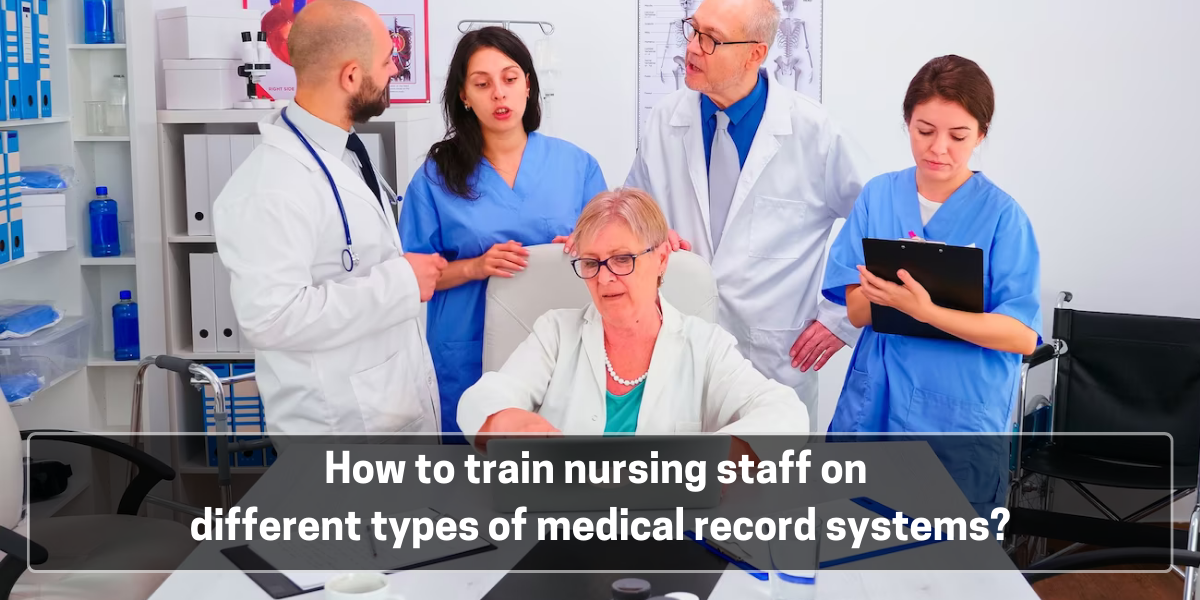Training nursing staff to proficiently navigate various medical record systems is an investment in quality patient care. It helps them use the tools they need to make informed decisions and provide timely, effective treatments. Are you wondering how to guarantee successful training? We’ve outlined some of the key strategies for impactful training in medical record systems:
- Kickstart the training process by gauging the existing knowledge and skill levels of your nursing staff. This initial assessment allows you to tailor the training content to address any knowledge gaps. Whether your team is already familiar with medical record systems or are beginners, understanding their needs is the cornerstone for designing an effective training programme.
- Develop training resources that resonate with your nursing staff. Simplify intricate topics into digestible, actionable components. The curriculum should encompass everything from features of the system to data input protocols and troubleshooting measures.
- Theoretical knowledge alone is insufficient for mastering medical record systems. Introduce hands-on training segments where nurses can gain practical experience in a controlled setting. Create an atmosphere conducive for them to practise key operations such as data entry and retrieval, ensuring that their queries or concerns are addressed in real-time.
- Different nursing roles come with diverse responsibilities. Accordingly, tailor the training modules to suit the unique needs of each role. For instance, nurses responsible for administering medication may require focused instruction on medication reconciliation and dosage tracking. This targeted approach prepares your nursing staff to excel in their designated roles.
- Training doesn’t conclude with the end of formal sessions. Supply ongoing resources such as user guides, quick-reference sheets, and dedicated support channels to help staff effectively navigate the medical record systems in their day-to-day operations.
- Periodically conduct assessments—whether they be quizzes, simulations or practical tests—to measure the proficiency of your nursing staff. These evaluations help affirm their grasp over the medical record systems and highlight areas requiring further attention.
- With the ever-changing landscape of technology, it’s vital to keep your staff’s skills current. Arrange regular refresher courses to update them on any new features or modifications to the existing medical record systems. This ongoing commitment to education ensures your team remains agile and fully equipped to adapt to any system changes.
- Collect and value feedback from your nursing staff to continually refine your training methods. Encourage them to share their experiences and suggestions regarding both the training process and system usability. By fostering a culture that prioritises continual improvement, you create an optimal learning environment that adapts and evolves.
By implementing these steps, you will not only empower your nursing staff but also elevate the standard of patient care in your healthcare facility.
Are you planning to implement eMAR in your healthcare facility?
If yes, book an eMAR demo with us today. In just half an hour, we can demonstrate how transitioning to a paperless system can simplify your workflow. We can conduct all demos remotely at a time that’s convenient for you, eliminating the need for on-site visits and the associated infection risks. If you choose to move forward, we can also remotely manage all your training and system setup needs.







